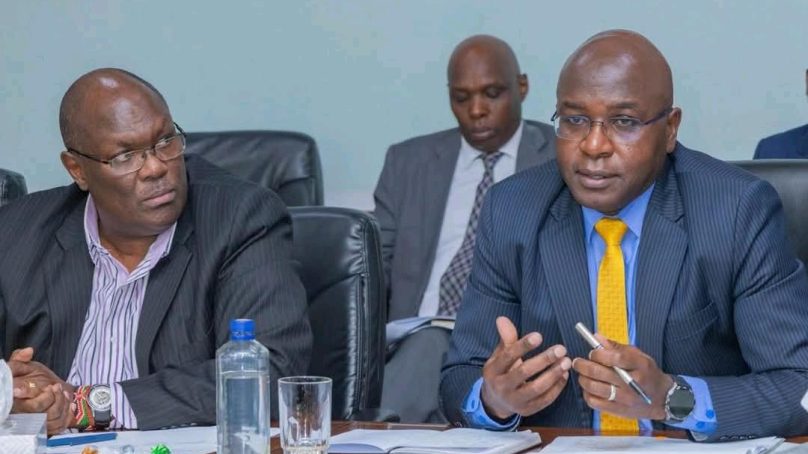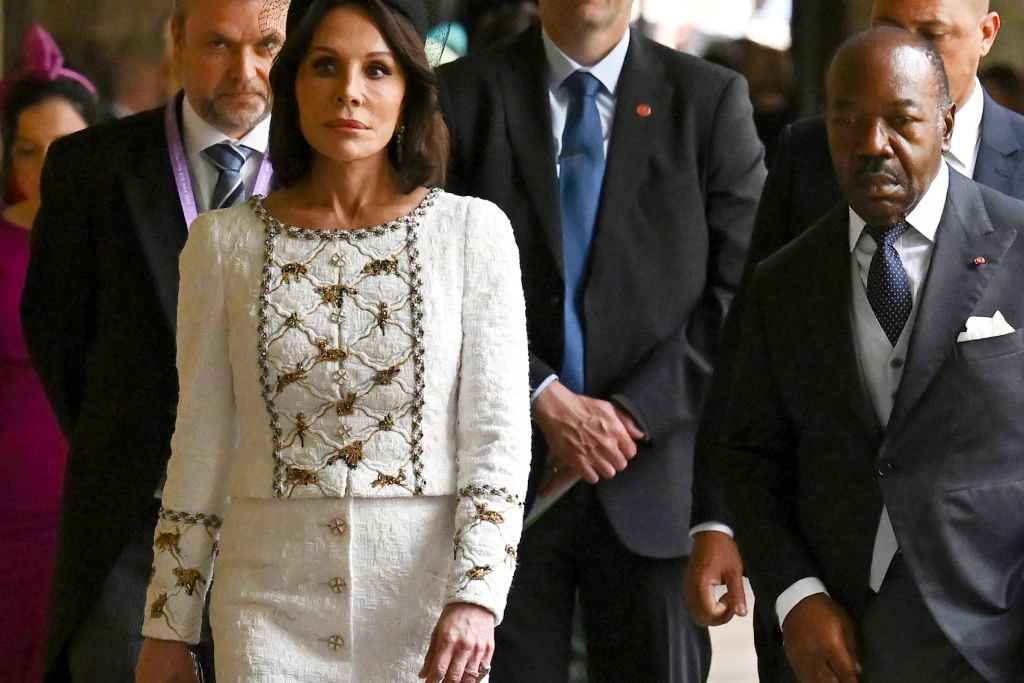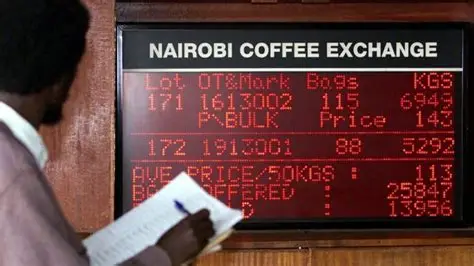
While World Bank and International Monetary Fund (IMF) have projected Kenya’s economic outlook in the short-tm to be gloomy, Kenya Revenue Authority Commissioner General Humphry Wattanga has painted a rosy picture of the days ahead following a jump in revenue collection.
According to Kenya Revenue Authority (KRA) revenue outlook, the agency surpassed its revenue target of Ksh2.555 trillion ($19.75 billion) for the financial year 2024/2025 after collecting Ksh2.571 trillion ($19.87 billion).
The achievement represents a 6.8 per cent growth of revenue collection and a performance rate of 100.6 per cent, compared with the Ksh2.407 trillion collected in the last financial year.
According to the KRA Commissioner General Humphrey Wattanga, the revenue performance reflects the prevailing economic indicators especially the Gross Domestic Product (GDP) growth of 4.7 per cent (Economic Survey) with notable growth recorded in key sectors like agriculture, forestry and fishing, financial and insurance activities, transportation and storage, and real estate.
Further, overall inflation eased to average at 3.6 per cent in 2024/25 compared to 6.3 per cent in 2023/24, while exchange rate of the Kenya shilling against the US dollar strengthened to an average of Ksh129.35/ dollar in the current year under review down from Ksh144.1 in the previous year.
In addition, international oil prices per barrel dropped by 12.5 per cent, with these factors leading to aggregate downward adjustment of local fuel pump prices for both petrol and diesel by 11.8 per cent and 12.2 per cent respectively.
However, Wattanga notes that other factors moved contrary to expectations, thus impacting revenue negatively for instance, the first half of the financial year 2024/25 was characterized by numerous economic headwinds, including Shelving of the Finance Bill 2024, high bank lending rates, global tariffs war, and international conflicts.
In particular, overall import values recorded weak growth of 0.04 per cent, affected by drop in import values of fuels and lubricants, and food and beverages which recorded declines of 16.4 per cent and 14.6 per cent respectively as, export values declined by 2.0 per cent especially from horticulture (-2.5 per cent) and tea (-15.4 per cent).
Additionally, access to credit by the private sector, the commissioner general reveals, remained constrained due to higher commercial bank lending rates in the current year compared to the previous year. Nevertheless, a downward adjustment in lending rates is anticipated following the Central Bank of Kenya’s (CBK) decision to lower the benchmark rate to 9.75 per cent in June 2025.
“As at the end of December 2024, credit extended by commercial banks to the national government grew by 13.9 per cent, while credit to the private sector declined by 1.1 per cent,” he reported, adding that this contraction in private sector credit dampens the prospects for investment and expansion across key economic sectors.
Notwithstanding these challenges, Wattanga avers that KRA’s robust measures yielded a significant revenue collection turnaround in the second half of the financial year as revenue grew by 9.1 per cent, compared to the 4.5 per cent growth recorded in the first half of the financial year.
The commissioner general reiterates that this 4.5 per cent growth of the exchequer revenue equates to Ksh2.323 trillion collected by KRA compared to Ksh2.223 trillion collected in the previous financial year which translates to a performance rate of 99.0 per cent, against a target of Ksh2.347 trillion.
KRA also collected Ksh248.276 billion on behalf of other government agencies, surpassing the target by Ksh40.465 billion which translates to a performance rate of 119.5 per cent.
On the other hand, domestic revenues registered a growth of 4.8 per cent after KRA collected Ksh1.688 trillion against a target of Ksh1.721 trillion which translates to a performance rate of 98.1 per cent whereas customs revenue recorded a performance rate of 105.9 per cent with a collection of Ksh879.329 billion against a target of Ksh830.368 billion, translating to a revenue growth of 11.1 per cent, compared to the same period in FY 2023/2024.
Meanwhile, the performance of key tax heads saw the domestic VAT (Value Added Tax) collection standing at Ksh327.336 billion, which reflected a growth of 4.2 per cent compared to the previous year.
Wattanga observes that in the first half of the financial year, KRA collected Ksh148.374 billion whereas in the second half of the FY, KRA implemented a raft of VAT compliance initiatives including strict VAT registration controls and verification of declarations, to seal revenue loopholes, enabling the collection of Ksh178.962 billion.
Concurrently, Excise Tax on betting services surpassed the target after registering a surplus of Ksh1.945 billion with a performance rate of 117.2 per cent as the tax head collected Ksh13.233 billion against a target of Ksh11.288 billion.
Betting Tax also registered a performance rate of 103.7 per cent after collecting Ksh5.70 billion against a target of Ksh5.495 billion.
“KRA collected Ksh560.963 billion from PAYE (Pay as You Earn), signifying a growth of 3.3 per cent,” said the Commissioner General, adding that despite the slow growth, the tax head recorded a performance rate of 99.0 per cent.
This slow growth, according to Wattanga, was attributed to utilisation of adjustment vouchers by taxpayers to offset tax liabilities and policy impacts, which included adjustment of KSHIF and Housing Levy from relief to allowable deductions before tax computation.
Furthermore, he said that corporation tax grew by 9.9 per cent compared to 4.9 per cent in the last financial year, after KRA collected Ksh304.833 billion against a target of Ksh321.080 billion. The performance, he highlighted, was boosted by a number of sectors, including ICT, manufacturing, financial, real estate, wholesale and retail among others.
On Domestic Excise, the tax head recorded a performance rate of 97.2 per cent, with a collection of Ksh69.385 billion. Wattanga points out that the performance is attributed to a decline of revenue remittance from manufacturers of beer and tobacco products by 13.9 per cent and 8.9 per cent respectively as KRA continues to enhance compliance measures in the sector.
The commissioner general in the meantime cited Section 47(2) (b) of the Tax Procedures Act, Cap 469B, which stipulates that approved claims not settled within six months shall be offset against existing and future tax liabilities.
In line with this provision, he divulged that adjustment vouchers amounting to Ksh49.673 billion were utilised by taxpayers to settle tax obligations across various tax heads in financial year 2024/25, which reflects a significant increase from Ksh24.845 billion utilised during the corresponding period in the previous financial year.
Likewise, Wattanga sums up that significant amounts of adjustment vouchers were utilised across various tax heads with corporation tax accounting for Ksh28.622 billion, PAYE for Ksh10.422 billion, and Domestic VAT for Ksh6.510 billion, among others.
On another note, the Revenue Mobilization Strategies saw KRA continue to implement its Ninth Corporate Plan, which runs for a period of five years during the period under review. Over this period, the commissioner general remarks that KRA is focusing on enhancing revenue collection, increasing customer satisfaction, digitalizing revenue administration and strengthening human resource management.
Into the bargain, he claims the organisation has continued to leverage disruptive technology to enhance efficiency, transparency and effectiveness in revenue collection. These innovations, he reiterates, are part of KRA’s broader digital transformation and tax modernisation strategy to improve compliance, reduce leakages and enhance taxpayer experience.
“Some of these technologies include Electronic Tax Invoice Management System (eTIMS), which has minimised VAT fraud; improved tax compliance; simplified VAT filing and payment process; facilitated tax base expansion and increased tax revenue. KRA recently rolled out eTIMS fuel stations system, designed specifically to streamline operations and address compliance challenges previously experienced within the industry,” he explained.
- A Tell Media / KNA report / By Michael Omondi
The Kenya Revenue Authority (KRA) Commissioner General, Mr Humphrey Wattanga (Right) speaking at a past event







